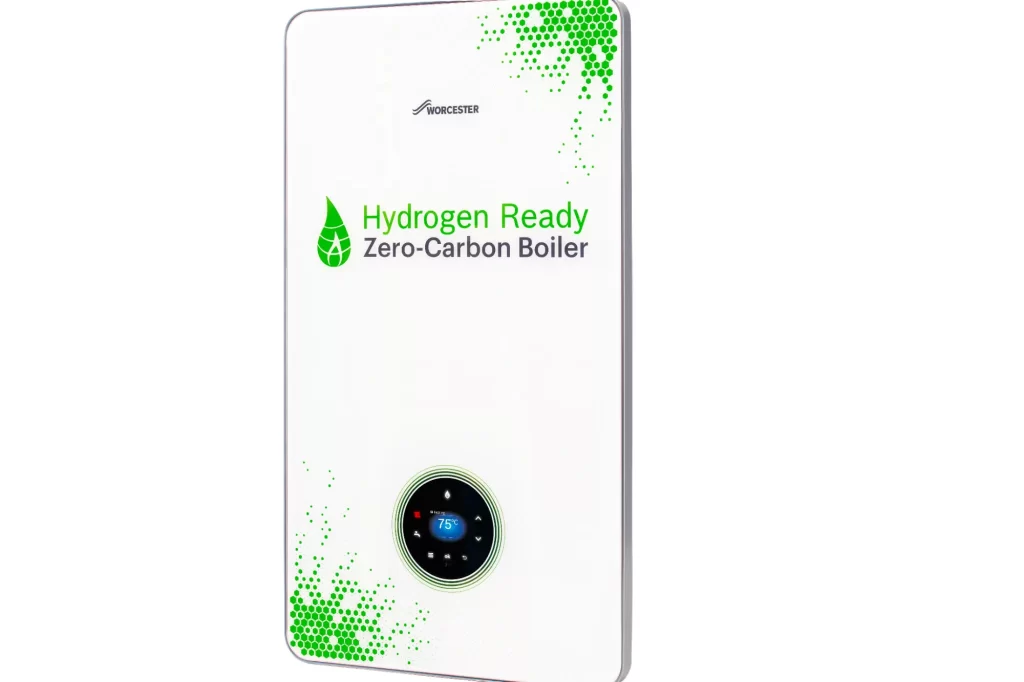A Closer Look at the Debate Surrounding the Use of Hydrogen Gas for Home Heating
The Future of Hydrogen as a Home Heating Energy Source, Debunking Myths and Exploring Alternatives The use of hydrogen gas to heat homes has been a topic of significant debate, particularly in the UK, where the government recently announced the cancellation of a planned trial for utilising hydrogen gas for this purpose.
This decision has raised questions about the viability of hydrogen as a home heating energy source and has further emphasised the shift towards alternative heating solutions, particularly heat pumps. In this blog post, we will delve into the reasons behind the government’s decision, the arguments for and against hydrogen as a heating source, and the alternative solutions that are being proposed.
The Government’s Decision, Shifting Away from Hydrogen
The decision to halt the trial for using hydrogen gas to heat homes in Redcar, Yorkshire, has been attributed to various factors. One significant reason cited by the government is the shortage of hydrogen supply. However, sceptics have questioned this explanation, pointing to the strong interests and lobbying efforts in favour of the trial.
Additionally, the decision reflects a broader shift in government policy favouring heat pumps over hydrogen for home heating. This move has sparked conversations about the effectiveness of hydrogen as a sustainable and feasible solution to the pressing issue of decarbonizing home heating.
Debunking Myths About Hydrogen for Home Heating
A prominent figure in the debate, Professor David Seaborn from Cambridge University, emphasises several key reasons why hydrogen may not be suitable for home heating. Firstly, he highlights the exorbitant expense associated with hydrogen, regardless of whether it is produced through green hydrogen or blue hydrogen processes. Moreover, the environmental impact of producing hydrogen raises concerns, as it would require a substantial amount of renewable electricity, potentially conflicting with other decarbonization targets. Such arguments underscore the challenges and limitations of relying on hydrogen as a primary energy source for heating homes.
Prospects for Hydrogen in Home Heating
Despite the government’s decision to cancel the trial, some proponents of hydrogen for home heating remain optimistic about its future potential. They assert that while new builds may accommodate heat pumps, retrofitting existing homes to transition away from natural gas usage could present an opportunity for hydrogen as an alternative. However, the choice between adopting a hydrogen boiler or a heat pump raises questions about affordability and accessibility, especially for homeowners facing the transition away from natural gas usage.
The Rise of Alternative Solutions, The Case for Heat Pumps
In response to the debate surrounding hydrogen, proponents of heat pumps argue that they offer a more efficient and cost-effective alternative for home heating. Heat pumps, along with heat networks, are positioned as viable solutions that can address the capital costs associated with their implementation while offering lower running costs.
Furthermore, despite concerns about the current cost of electricity, proponents advocate for the long-term economic benefits of heat pumps, ultimately creating a more favourable balance when compared to hydrogen as a heating energy source.
The Future of Home Heating
In conclusion, the decision to halt the trial for using hydrogen gas to heat homes in Redcar signifies a pivotal moment in the ongoing discourse surrounding home heating energy sources. While hydrogen has been touted as a potential solution, the challenges related to cost, environmental impact, and supply highlight the complexities of adopting hydrogen as a widespread home heating energy source.
As the government emphasises the shift towards heat pumps and other alternative solutions, it becomes evident that the future of home heating lies in sustainable and cost-effective alternatives that can effectively address the pressing need for decarbonization.
In closing, the debate surrounding hydrogen for home heating underscores the need for comprehensive and forward-thinking strategies to address the challenges associated with transitioning to low-carbon heating solutions.
By examining the complexities and implications of different energy sources, including hydrogen and heat pumps, we can work towards a more sustainable and resilient approach to home heating, ultimately contributing to broader efforts in combating climate change and promoting environmental sustainability.






